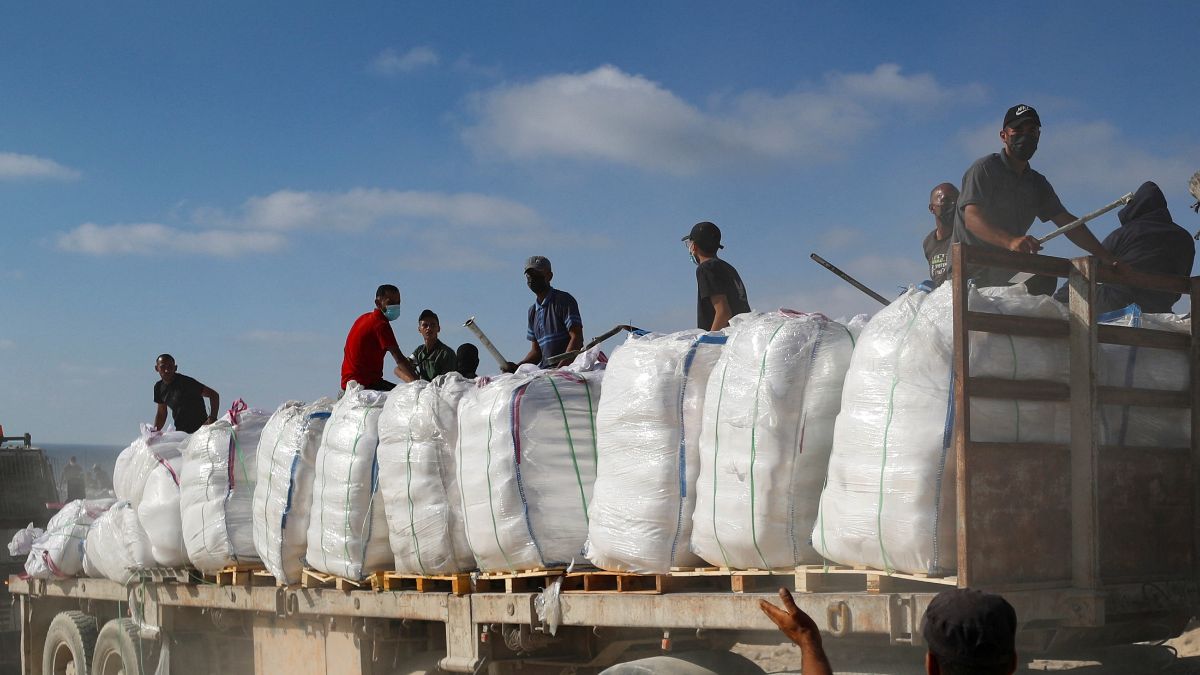Israel orders inquiry into possible war crimes after fatal shootings near Gaza aid sites
 Palestinians from clans hold melee weapons to secure an aid truck in Beit Lahia, in the northern Gaza Strip | Reuters
Palestinians from clans hold melee weapons to secure an aid truck in Beit Lahia, in the northern Gaza Strip | Reuters
Israel's Military Advocate General has opened an investigation into allegations that its troops deliberately fired at unarmed Palestinian civilians near humanitarian aid distribution points in Gaza. The probe follows a report in the Israeli newspaper Haaretz claiming that Israeli forces were instructed to open fire on crowds approaching aid convoys, despite knowing the civilians posed no threat.
According to the article, soldiers described the approach routes to food distribution sites as a “killing field”. One anonymous soldier said troops were told to shoot at Palestinians nearing these areas to prevent them from getting close to Israeli military positions. The report also indicated that artillery shells had recently been used to disperse crowds, leading to a spike in casualties.
The Israeli military has denied the accusations. In a statement, the Israel Defense Forces (IDF) said, “IDF directives prohibit deliberate attacks on civilians,” and insisted that no orders had been given to target unarmed individuals. Still, growing evidence of civilian deaths, including those waiting for aid, has placed Israel under mounting scrutiny.
Hundreds of Palestinians have been killed in recent weeks as they tried to access food supplies. These casualties have been caused by a combination of airstrikes, gunfire and artillery bombardment in the vicinity of distribution centres.
The military’s internal review team, which examines incidents that could breach international law, has reportedly been tasked with assessing soldiers’ conduct at aid distribution points over the past month. Despite the IDF’s claims of robust oversight, critics argue that few internal investigations lead to accountability.
The controversy has drawn criticism from both humanitarian organisations and political observers. The Gaza Humanitarian Foundation (GHF), a US-backed private contractor managing food distribution from four hubs in Gaza, has faced particular scrutiny. Though it coordinates closely with the Israeli military to ensure safe routes, aid experts say the arrangement has not prevented violence.
In response to Haaretz’s revelations, the GHF said it was unaware of the specific incidents described but acknowledged that the allegations were too serious to ignore. “We call on Israel to investigate and transparently publish the results in a timely manner,” it said.
Despite safety concerns, the US State Department on Thursday announced an additional $30 million in funding for the GHF. The organisation claims it distributed 46 million meals in four weeks. However, the aid often arrives unpredictably, including at night, forcing Palestinians to traverse rubble-filled streets and cross through military zones, where they risk being targeted by tanks, mortars and gunfire.
Aid delivery has become even more perilous after Israel closed key entry points to northern Gaza, where the humanitarian crisis is most severe. Previously, the United Nations and other international groups managed most aid distribution, but Israel has accused Hamas of diverting supplies for military use. The UN denies these claims, insisting its monitoring mechanisms are rigorous.
The risks were laid bare on June 26, when 18 people were killed in an Israeli strike on a flour distribution point in Deir al-Balah. The site was managed by Sahm, a police unit formed by Gaza’s Hamas-led interior ministry to prevent looting and black-market sales of humanitarian supplies. Among the dead were civilians and at least seven members of Sahm, including a child, according to hospital sources. The Israeli military has not commented on the strike.
Israel’s Prime Minister Benjamin Netanyahu and Defence Minister Israel Katz dismissed the Haaretz report as a “malicious falsehood” designed to discredit what they called “the most moral military in the world.”
As the investigation proceeds and pressure mounts, UN Secretary-General António Guterres offered a stark warning on Friday. “People are being killed simply trying to feed themselves and their families,” he said. “The search for food must never be a death sentence.”
Middle East